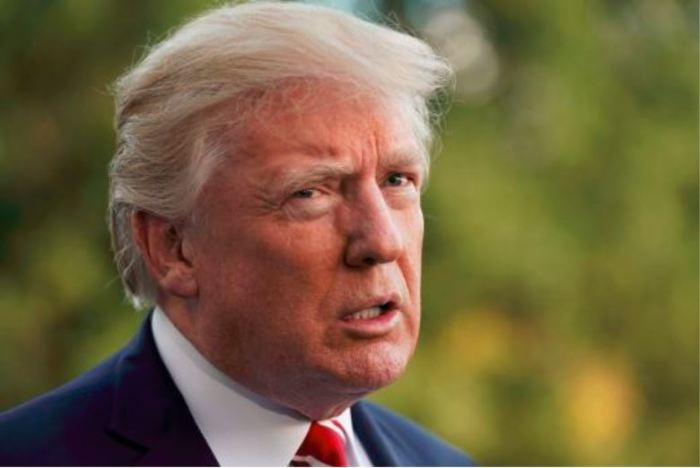How Tribalism Is Now Afflicting American Politics

One of the most profoundly confusing aspects of Donald Trump's presidency is his unwavering support from evangelical Republicans. How (non-believers sometimes ask) can Christian voters support a man with five children from three different wives, and a serial adulterer and liar who has been recorded boasting about committing sexual assault?
The answer may lie in the trenchant tribalism now afflicting American politics. Where once Republicans thought Democrats were wrong, and Democrats thought Republicans were misguided, both sides now appear to view the other as inherently evil, perhaps even an existential threat to the future of the republic.
President Trump has proved a master of this divide and rule philosophy. When, in January 2016, Trump said that he could shoot somebody and not lose voters, it seemed just yet another of his endless statements of the absurd, but similar sentiments have been voiced by some voters in Alabama about Roy Moore, even as the accusations of gross impropriety grow in volume and credibility. It seems some Alabamians would rather vote for a Republican pedophile than a Democrat.
We all, in our own way, compartmentalize emotional information. Republican voters appear to take the view that although Trump is a strange and flawed man, he shares their 'values' and will deliver on their political desires. Democrats find this psychological dichotomy hard to understand, but could perhaps be reminded that Barack Obama presided over a dramatic expansion in drone attacks overseas, accelerated surveillance and wiretapping at home, and arrested journalists and whistle-blowers using arcane espionage laws (despite promising to do the opposite as a candidate). It's rare that we find someone from our own side who fulfils our rose-tinted ideals.
However, whether Republican or Democrat, most have come to the realization that this President is very different to any predecessor. The pace of current affairs has moved to light-speed - Trump seems unable to go 24-hours without saying or doing something that is outrageous, indecent or bizarre. Could you in your wildest dreams ever have imagined a President of the United States goading a nuclear enemy by tweet and calling him 'short and fat'?
No, this is not the same. This man, and this time, is not just part of the regular back and forth of American political history. Trump is ignorant, disdainful even, of the fundamentals of US government. His travel bans have been found to be wildly unconstitutional, he has attacked the judiciary when decisions don't go his way and called the justice system a laughing stock. Few should be in any doubt that, given the opportunity, Trump will dispense with the separation of powers and begin to operate as emperor.
Never a prodigious reader, the one book Trump appears to have ingested is Strongman 101. Trump is well on the way to doing what Erdogan has done in Turkey, Putin in Russia and Orban in Hungary – make yourself the singular political personality, so that everything is about you, then conflate the fate of the nation with your own – the 'I alone can fix it' principle Trump voiced at the RNC convention last year.
Trump's personal incompetency may seem comforting for those who fear this authoritarian drift, but despite the volume from Washington set permanently to maximum, we should remind ourselves that the nation is not currently facing a true crisis. When one comes along, it seems inevitable that Trump will exploit the drama for his own benefit.
The Bush administration ruthlessly exploited the tragedy of 9/11 to trample on civil liberties and the Constitution. Arriving at the White House just hours after the twin towers fell, Richard Clarke heard Defense Secretary Donald Rumsfeld say 'you know, we've got to do Iraq'. Tragedy can be mined as opportunity, and the recent terrorist attack in New York (despite the relatively low death toll) was the subject of a flurry of tweets and presidential remarks, all aimed at consolidating Trump's view that the only way for Americans to truly be safe was travel bans, xenophobic nationalism and a border wall.
Authoritarians often conceal their true colors until a crisis allows them to seize power, and enact 'emergency' measures justified by the notion of keeping the country from peril. It would be hard to mount the case that Trump will not take this opportunity when it arises. He has successfully demonized the 'other' through his campaign and presidency. An August 2017 poll suggested over half of Republicans would support the postponement of the 2020 election until the (non-existent) issue of voter fraud was fixed. Another survey (in 2014) found that a staggering one in six Americans felt that military rule (of their own country) would be a 'good' or 'very good' thing. A national crisis will allow Trump to pour fuel on this already burning fire.
Faced with desperation, opioid addiction, low wages and a collapse in the social contract-poor and evangelical white Americans grasped at anything that looked like change in 2016, and chose the only brand on offer-Trump. For the moment, this support remains steadfast, but tribalism in times of great national stress can be profoundly dangerous. If it's possible to frame football players kneeling down to protest civil rights as an affront to patriotism, just think what could be done when a true emergency arrives. America's Constitution is about to undergo its most rigorous stress test, and one half of the country seems to think the other are traitors. Other countries have experienced this political division before, and the results are not pretty.
George William Grundy is an English-Australian author, media professional and businessman, born in London in 1971. After a successful career in media broadcasting and advertising, Grundy has moved into political commentary and writing, and is the author of Death of a Nation: 9/11 and the Rise of Fascism in America.




























